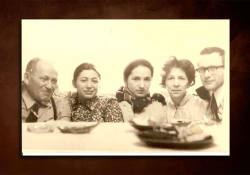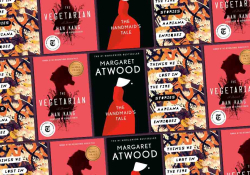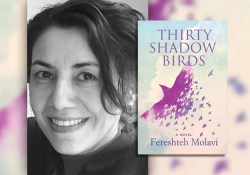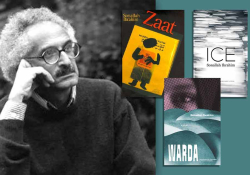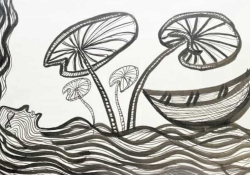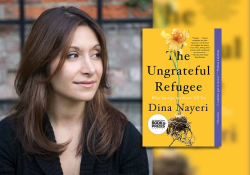Will These Stories Ever Be the Same? A Korean Translator’s Misgivings
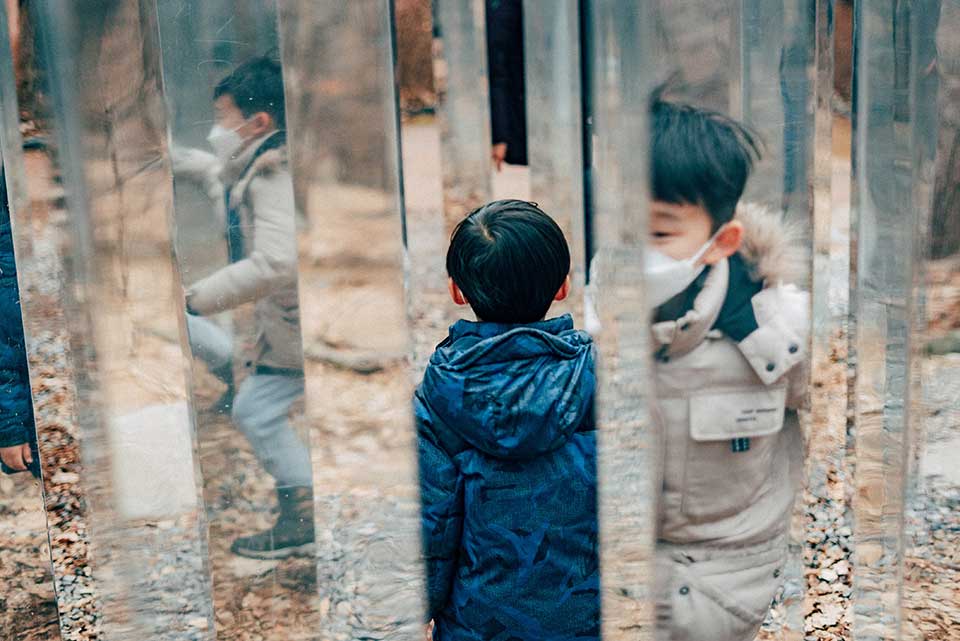
A translator discovers that an author—whom she has translated and admired for so long—was complicit in a past administration’s efforts to silence dissenting writers. What does she find when, following her discovery, she revisits the author’s work?
I had set out to write an ode. Oh Jung-hee was the first writer I ever wanted to translate; I am tempted to go so far as to say her writing was the reason I became a translator. But I am only one among a handful of translators who, over the past twenty years, have sought out opportunities to bring her stories to the English-speaking world. Oh, now in her late seventies, is, after all, one of the most influential Korean writers alive, whose writing has helped shape the country’s postwar modernist literature. However, despite the efforts of these translators, Oh has yet to be read widely around the world. I wanted to change this. I was gripped by a somewhat mysterious sense of responsibility to take on the role of a spokesperson, to help readers outside Korea see that she deserves to be read and discussed.
But this plan took an unexpected turn when, on a morning in June, only a few days into an early draft of my essay, my newsfeed pulled up photos of a group of writers protesting outside the Seoul International Book Fair, holding cardboard signs bearing the writer’s name and the statement, “Literature that knows no shame is nothing more than social violence.” Oh was serving as an ambassador for the event, that much I knew—I remembered seeing a glamorous black-and-white blow-up of the author advertising the event on a building façade, casting her gaze beyond the busy downtown traffic. Only after reading the news, I learned that during the Park Geun-hye administration, Oh, as a senior member at Arts Council Korea, had been involved in the government’s aggressive censorship efforts.
In 2017, after Park was impeached from the presidency for abuse of power and sentenced to twenty-four years in prison, investigations revealed that the administration had compiled an extensive blacklist of 6,367 activists, journalists, artists, entertainers, and writers—including the internationally acclaimed film directors Bong Joon-ho and Park Chan-wook—who had expressed political dissent through petitions, party membership, and other means. Arts Council Korea’s creative-writing grant program had been providing support to one hundred writers each year, but in 2015, when an independent panel of judges refused to give in to the council’s pressures to exclude blacklisted writers from the selection, the council bypassed the panel and cut down the number of recipients to seventy to force the elimination of the targeted names. And Oh, as the one member in the entire council representing the field of literature, had either taken part in the process or looked away.
My initial response was one of embarrassment, or perhaps even shame, for having been unaware of Oh’s involvement. It had been almost six years since the existence of the blacklist became known and began to be widely covered in the media, but how was it that the involvement of one of the country’s most prominent and revered writers was news to me? Had it been my own negligence? Or had I let myself view Oh as a domestic recluse content to be tucked away in the lakeside city of Ch’unch’ŏn, uninterested in public life, and certainly not in censoring her fellow writers? Being a literary translator requires a certain amount of adoration for the authors you take on, but I have experienced my share of disappointments and damage caused by the mistakes and misconduct of some of them. I should know that writers, even one’s literary heroes, can be less than the work that they create. Complicity in censorship, however, goes beyond the realm of personal wrongdoing. A writer taking part in the silencing of fellow writers feels to me like an act of fundamental betrayal, even violence.
Complicity in censorship goes beyond the realm of personal wrongdoing.
According to a white paper issued following a yearlong investigation into the Park Geun-hye administration’s blacklist practices, Arts Council Korea’s elimination of thirty writers from state funding was its biggest act of censorship in scale. The act took place over a five-month period and required the most intricate execution. It was carried out by the council’s staff, under orders from the Ministry of Culture, Sports and Tourism, who were all questioned in the course of the investigation. Oh was questioned as well, but she testified that she had no knowledge of the blacklist and had assumed that the elimination of funding for the thirty writers was due to budget cuts, not political pressure. This part was especially difficult for me to read, because all others acknowledged the blacklist, whether they complied or resisted pressures to exclude the listed names. And Oh has remained silent about the issue over the years, never once addressing the matter as she has continued to give public talks, to serve as judge for contests and awards, while holding one of Korea’s most prestigious public posts as a member of the National Academy of Arts. And now, with the Seoul International Book Fair taking place in person for the first time in four years, her photo was all over the city, on buses and buildings. This was why the protesters had to make themselves heard on opening day, to let those like myself know.
And now that I knew, what would I write about Oh Jung-hee? Would I still write about her at all? What else was there for me to do but to reread and to reexamine her writing, from a perspective that had certainly shifted in the light of what I now knew?
Oh Jung-hee was born in Seoul in 1947, to parents who had just moved south from the northern provinces. When the Korean War broke out three years later, her family fled south and sought refuge in landlocked Ch’ungch’ŏng-do, where they ended up living past the ceasefire, her parents no longer able to return home in a country now divided in half. The family eventually moved to the port city of Inch’ŏn, and Oh attended elementary school in a neighborhood bustling with Chinese merchants and brothels serving American GIs.
She has revisited these war years in two coming-of-age stories, which are some of her most widely read works. In “Yunyŏnŏi ttŭl” (1980; Garden of childhood), a young girl lives with her mother, grandmother, and four siblings in a single, rented room as war refugees in a village where they know no one. Her father is missing, her mother stays out late serving food to men, her grandmother is a stranger, her teenage brother explosive. The girl’s first-person voice, cool and clear, conveys her steady observations of those around her, which, in the course of the story, develop into a recognition of other people’s hunger and desire, as well as her own, in the face of such deprivation.
“Chunggukin kŏri” (1979; Chinatown) is a story that seems to pick up where “Garden of Childhood” left off, following the narrator and her family—now reunited with the father—to Inch’ŏn, where she encounters a wholly unrecognizable world of foreigners, whores, and war relics. The girl reaches puberty as she navigates this new world, full of dangers and wonders, considering the lives of others while searching for her own. Reading the two stories again, what stands out to me is that they are rare examples of Oh constructing her fictional world within the bounds of realism—perhaps it is no coincidence that Oh has not written anything else that is vaguely autobiographical—to create a deeply personal, psychologically complex narrative of the Korean War and its aftermath.
By the time Oh was in her teens, her father had secured a job, and the family finally settled back in Seoul as the city was recovering from the damages of war. Oh attended elite schools, singularly focused on becoming a writer, and published her first story in her junior year as a creative writing major at Sorabol College of Arts. In the fifty-five years that followed, as she continued to write, she married, moved to Ch’unch’ŏn—where her husband took a professorship—and raised her children, not stepping onto the center stage of Seoul’s literary scene even as she collected, one after another, all the country’s major writing awards. She has never been a prolific writer; she has published only four story collections—the last of which was in 1995—in addition to a novella and a children’s book. And it was later in life, when she was publishing very little, that she began taking on various public posts in the capital.
Examining the lives of women is clearly the thread that runs through Oh’s oeuvre, and more often than not, these stories of womanhood are rendered with a certain gothic sensibility and a mythological imagination. In “Pului kang” (1977; River of fire), the title story of her first collection, the opening scene describes the husband as “an aging hunchback,” and the young couple’s apartment is depicted as a haunted prison where “the locked rooms mumble and moan, the broom and the duster running amok to fog up the dark corners with clouds of dust.” The apartment looks out at a power plant that has been standing there for “almost half a century,” now vacated and closed up like a “castle of ghosts, with numerous rooms and labyrinths.” As the story unfolds, we realize that we are being presented with the traumatized vision of a couple who have lost their infant child.
“Chŏnyŏkŭi keim” (1979; Evening game) is narrated by a daughter left with her aging father who, like a “medieval alchemist,” concocts a potion of red-bellied frogs, black beans, and toad oil to clear his blood. The plot that ensues is embedded with symbols and images befitting a warped Freudian nightmare, resulting in clearly one of the darkest, most idiosyncratic stories in Korean literature, but definitely not one that readers will recognize as based on the realities of our lives.
Had I loved her works because they were apolitical or politically ambivalent?
That Oh’s stories read more like mythological allegories once had tremendous appeal for me. It made her work singularly original within the landscape of late twentieth-century Korean fiction, especially when it came to women’s narratives, which could easily turn into overwrought dramatizations of victimhood or of saintly motherhood against the backdrop of Korea’s deeply patriarchal society. But now I found myself asking, Had I loved her works because they were apolitical or politically ambivalent? Because she employed sociopolitical context as a blurred backdrop and not as actual events that the characters must directly confront? Or am I simply poring through the text in search of evidence that might have foretold the role that she would play in the social realm, outside of her fiction?
Of course, Oh’s choice to not write stories grounded in Korea’s social realities is no proof that she is uninterested or uninvolved in them. That she chooses not to write stories with a classic narrative arc—of a protagonist encountering conflict and confronting her own flaws and contradictions, as well as the society’s—perhaps has little to do with her personal integrity. But I do find myself wondering, What would one of her characters have done if they were faced with what Oh had faced at Arts Council Korea, before and after the fall of a regime like Park’s?
Perhaps the most poignant to me among Oh’s stories in light of current events is “Tonggyŏng” (1982; Bronze mirror). It is told from the point of view of a male character—a rare perspective for Oh—and an elderly man at that, around the age that Oh is today. He and his wife lost their only son many years ago when the son was only twenty. It is implied that the son was a student activist who left the house one spring day, “running off like a pinwheel, his hair all spiky, as if it had been lit with wrath,” and never made it back alive. Now the father is an old man who, following his retirement, began losing his health, his teeth, his appetite. The story depicts a single afternoon, in the course of which he is forced by a wicked, neglected girl from next door bearing mirrors in various forms, to confront what he has long put aside, ever since that day when he buried his son and thought to himself that what he had placed in the ground was “not his corpse, beginning to rot impatiently in the frenzied spring sun, but a small piece of mirror.”
It is a chilling yet beautiful narrative, intricately interwoven with imagery borrowed from archaeology and shamanism. Oh’s writing creates a picture of old age so ghastly and haunting that back in my twenties, I could barely make it through my first reading. Rereading it now, there was a short, two-sentence paragraph that leaped out at me: “Old people do not engage in self-reflection. Self-reflection is required when a new life awaits, but none awaits an old man.” It is the narrator’s inner voice responding to his wife’s endless reminiscence of youth, which leads her to this childish outburst about her son’s death: “What does a twenty-year-old know? That’s an age when squeezing out pimples is about all you can muster, how could he have thought he could turn the world upside down?”
Oh was thirty-five when she wrote “Bronze Mirror.” Now she is seventy-six, no longer the little girl beaming light on the elderly couple with her mirror shards. She might be the one with a mirror being pushed against her face.
Oh might be the one with a mirror being pushed against her face.
Two days after the protests, the book fair’s organizers announced that Oh had resigned from her ambassadorship and apologized for “failing to sufficiently take into consideration those who suffered damages related to the blacklist.” There was no word from Oh. There were no news reports, either, of any attempts made to demand an explanation from Oh. On the other hand, there were two opinion pieces that criticized the protesters for attacking a celebrated senior writer without sufficient evidence, and that they ruined a major opportunity to sell more Korean titles to international readers.
“Bronze Mirror” ends with a stark yet ambiguous image. The old man’s wife is weeping, unable to run away from the assault of the mirrored light the little girl is flashing on her face. The man feels he should offer words of comfort to ease his wife’s pain, but he is still dazed from his nap, and, without his dentures, his lips are collapsing into his mouth, making him “unable to speak.” In the end, it is only his dentures, soaking inside a glass of water, that “appear to be about to utter something, the teeth glistening, bright and lucid.”
Ewha Womans University, Seoul, Korea




